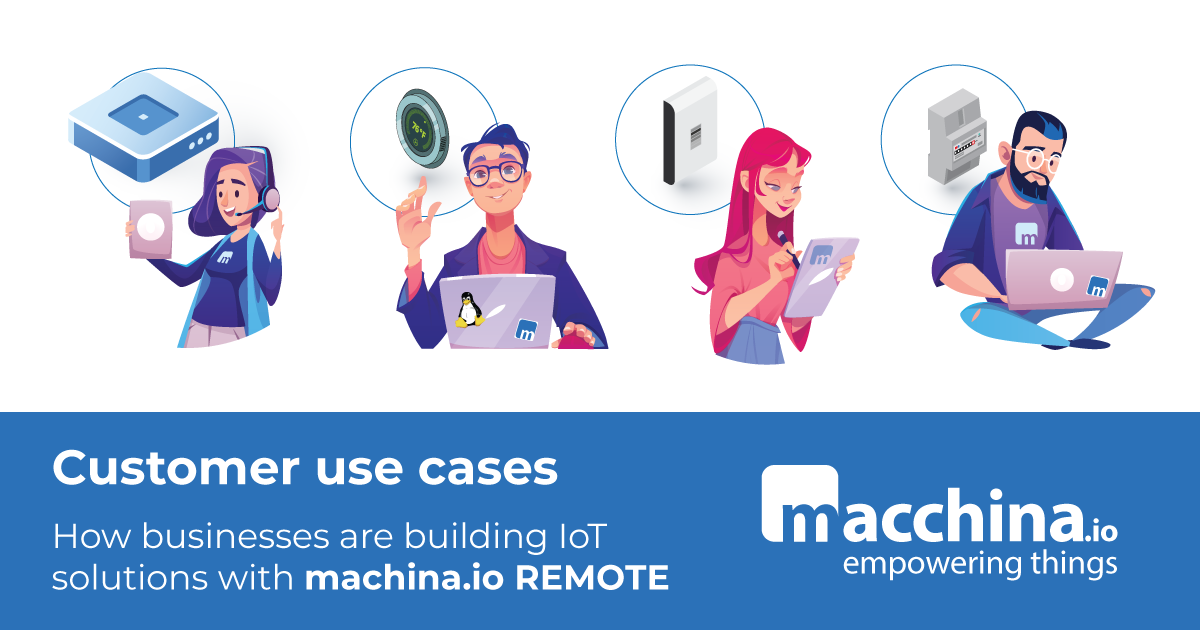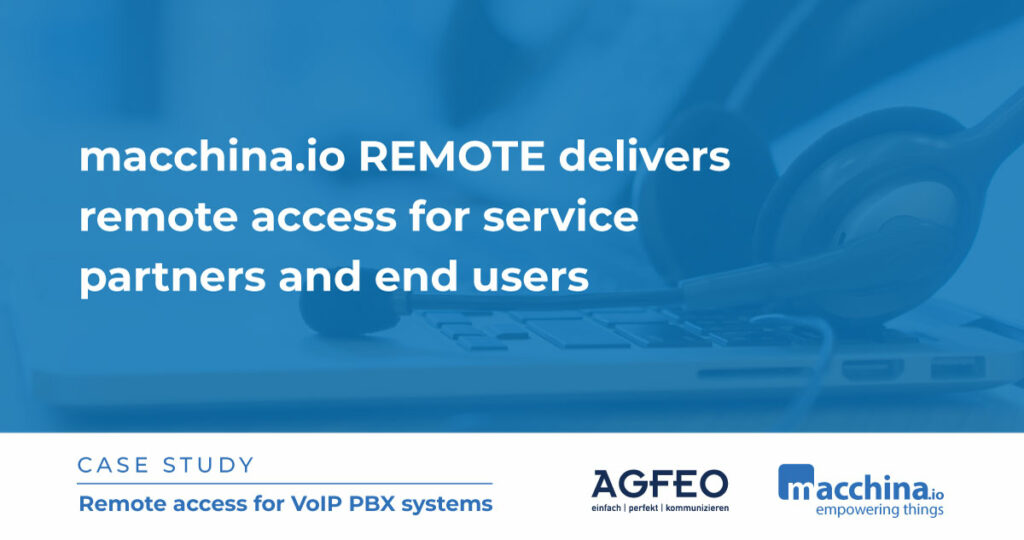Being able to securely access, control and manage IoT devices is a fundamental part of any IoT project. Here are a few real world IoT use cases. They illustrate how macchina.io customers have been able to improve the way they operate by building remote IoT device access into their business processes. Managing Office Telephone Systems […]
Telephony and communication systems AGFEO, founded 1947 in Bielefeld, Germany, is a leading European manufacturer of telephony and communication systems for small to medium-sized offices and companies. These systems consist of a central unit, called a Private Branch Exchange (PBX), and the actual phones which are connected to the PBX. Modern PBX systems use a […]
Starting with the 2016.1 release of the POCOPRO frameworks a new feature has been added to the Remoting NG toolkit that makes it easy to implement RESTful web services in C++. Remoting NG is a distributed objects and web services framework for C++, based on annotated C++ class definitions and a code generator. Remoting NG […]
Over the past few months we have been quite busy working on our newest product which we call the “IoT Framework”. In a nutshell, the IoT Framework contains everything needed for building software for Internet of Things-enabled devices. Of course the framework is based on our existing C++ toolkits, most notably the POCO C++ Libraries. […]
Applied Informatics Remoting NG 2013.2 contains a new JSON-RPC transport that implements the JSON-RPC 2.0 protocol. JSON-RPC is a stateless, light-weight remote procedure call (RPC) protocol using JSON as serialization format and HTTP or WebSockets as transport. This can be used to make a JavaScript web application talk to a C++ backend, RPC-style, by simply […]


